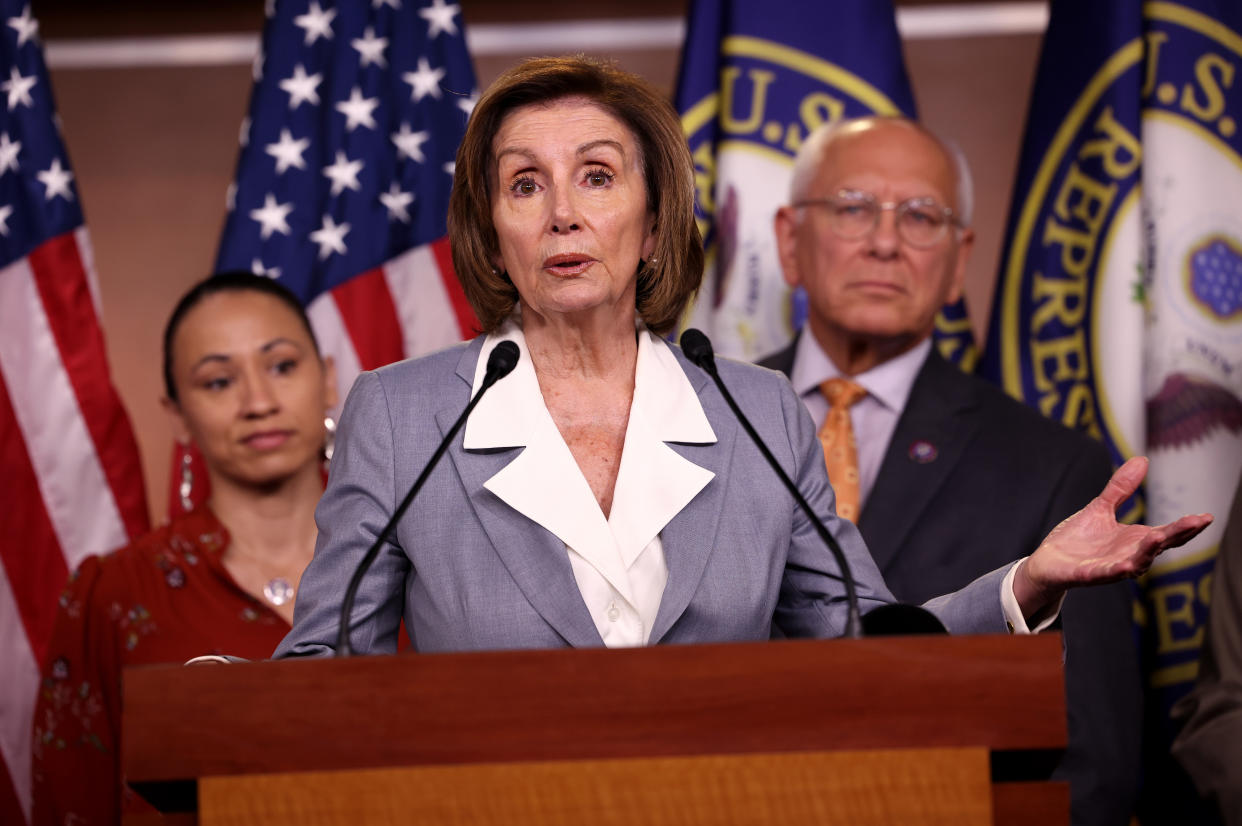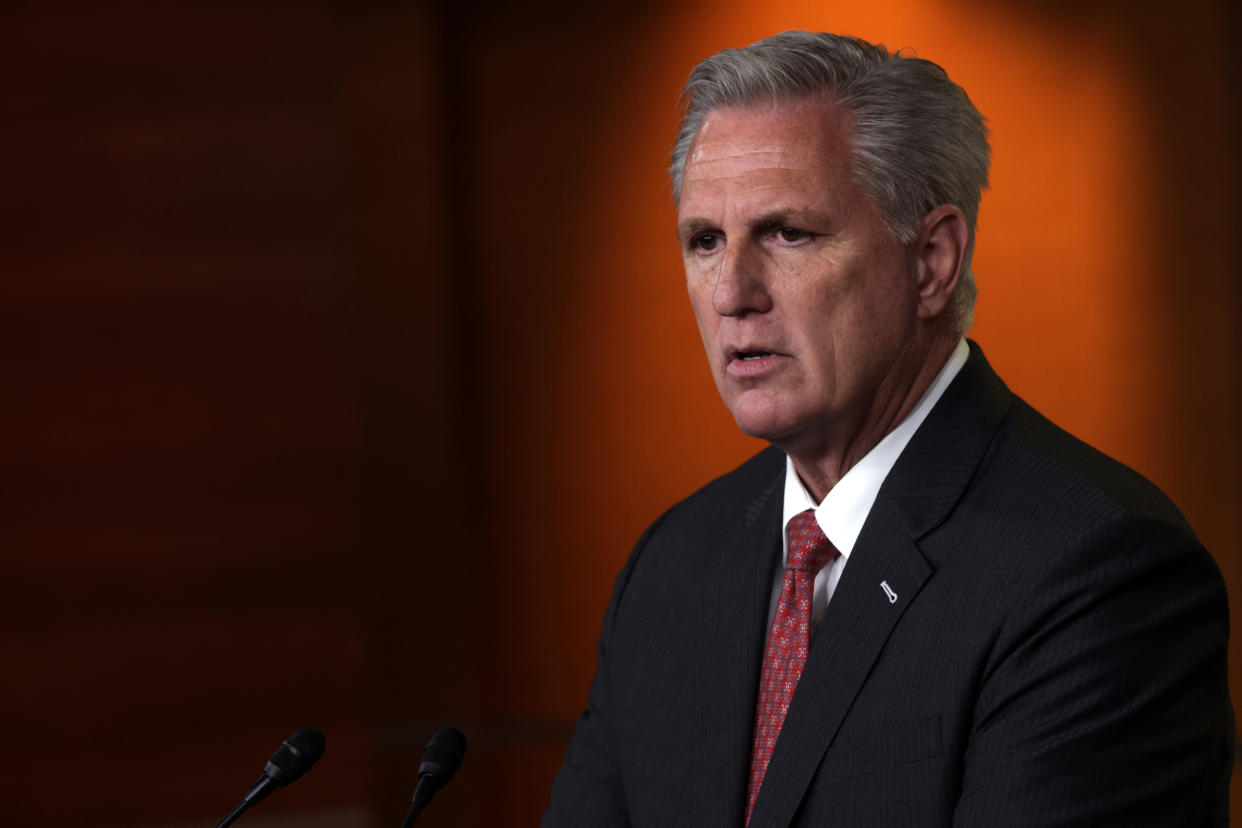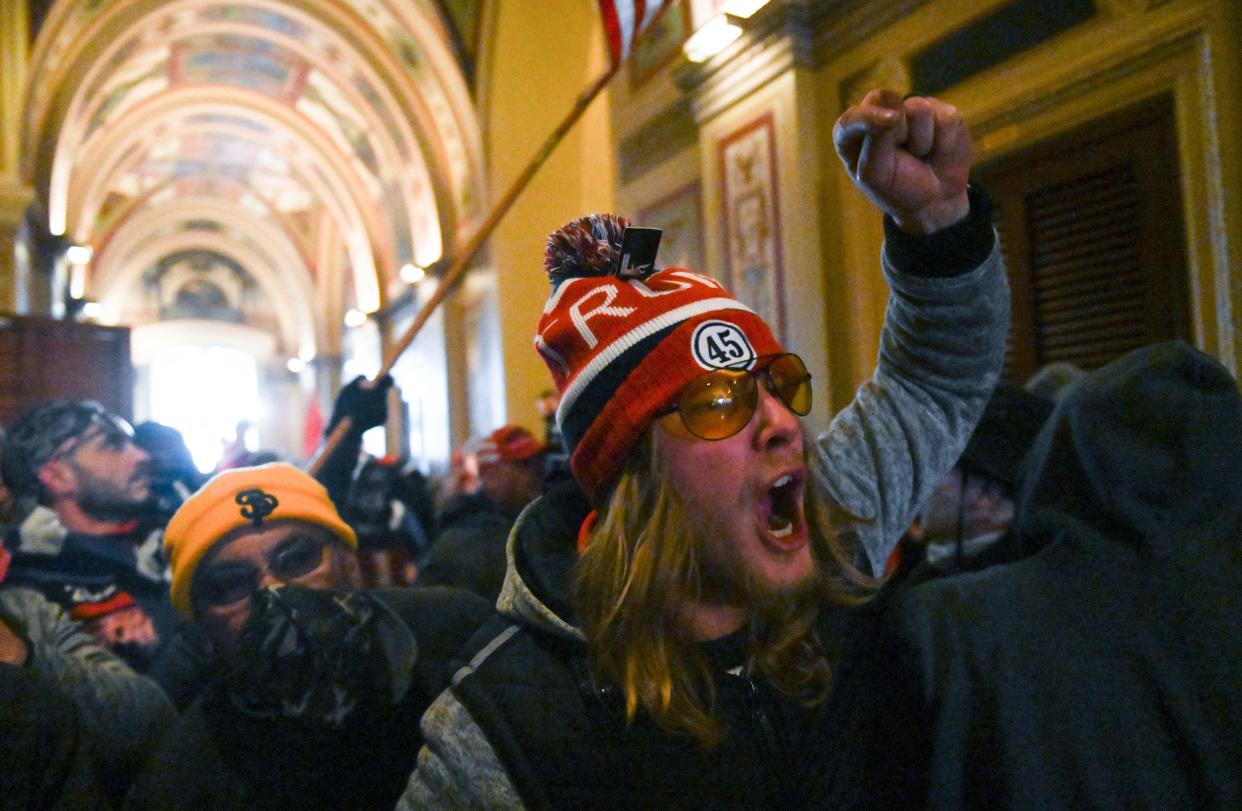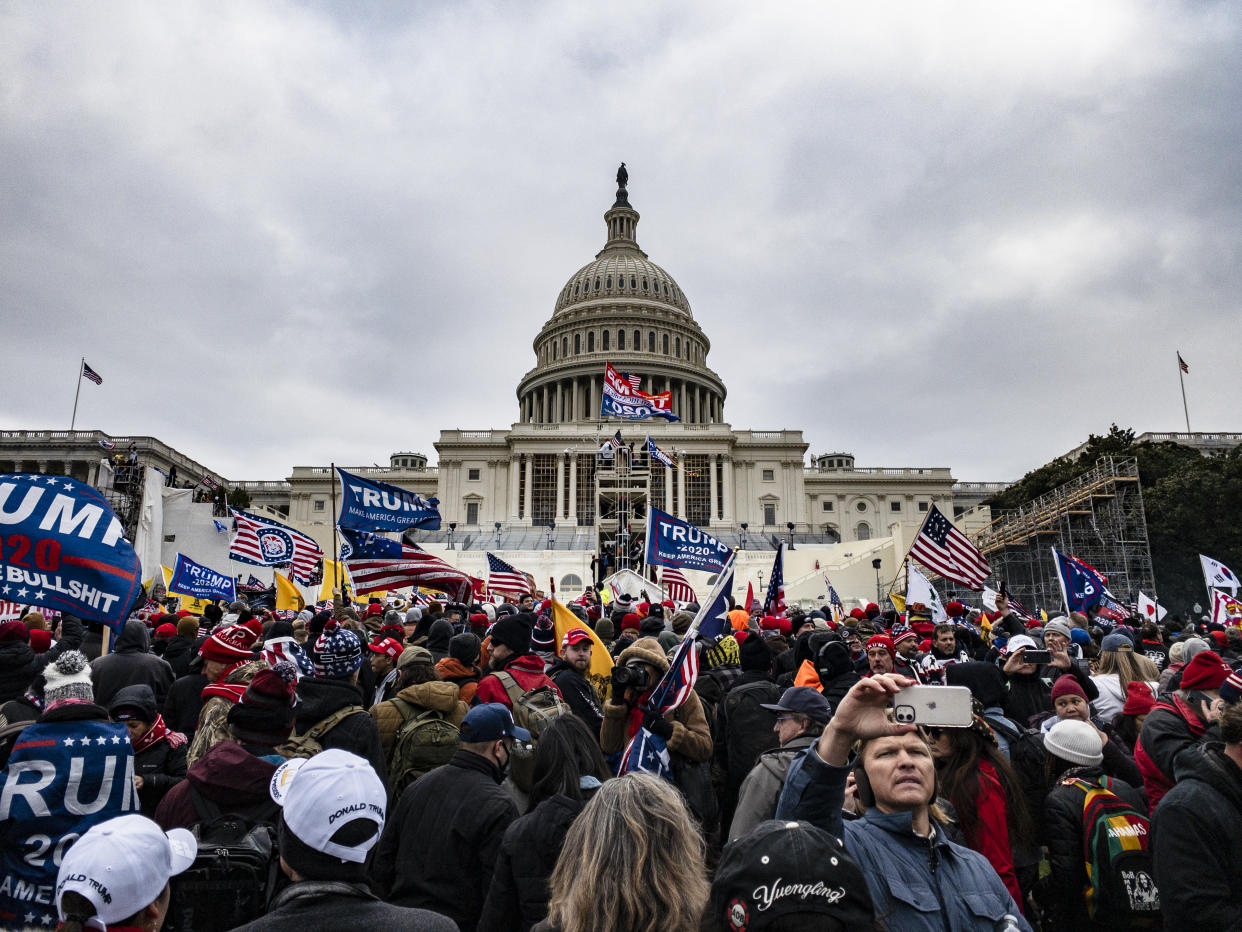How the House select committee will go about investigating the Jan. 6 riot at the Capitol
Though the House of Representatives voted Wednesday to create a select committee to investigate the deadly Jan. 6 attack on the U.S. Capitol carried out by supporters of then-President Donald Trump, many questions remain as to how the investigation will unfold and what conclusions it may reach.
The creation of the select committee came roughly one month after Senate Republicans killed a proposal to establish an independent, bipartisan commission to investigate what happened leading up to and during the riot. In early June, two Senate committees published a report on their findings regarding a separate Jan. 6 probe. A number of other congressional committees have also been looking into various questions relating to the preparation and response by law enforcement to the violence that erupted that day, as has the inspector general of the Capitol Police. In addition, there are the hundreds of criminal investigations the FBI is conducting into the riot and its participants. To date, those investigations have resulted in the arrests of more than 500 people on charges ranging from unlawful entry and disorderly conduct on Capitol grounds to assaulting federal officers and conspiracy.
That doesn’t mean the House select committee will have nothing left to investigate, as some Republican lawmakers have contended. Here’s what we know so far about how the new committee will go about its business.

Who will serve on the committee?
House Speaker Nancy Pelosi announced Thursday that the 13-person investigative panel will be chaired by Rep. Bennie Thompson, a Mississippi Democrat and chairman of the House Homeland Security Committee. Just one Republican, Rep. Liz Cheney of Wyoming, has been appointed so far to sit on the committee. Cheney and Rep. Adam Kinzinger of Illinois were the only two Republicans to vote in favor of creating the select committee.
In addition to Thompson and Cheney, Pelosi named Democratic Reps. Jamie Raskin of Maryland, Zoe Lofgren of California, Adam Schiff of California, Pete Aguilar of California, Elaine Luria of Virginia and Stephanie Murphy of Florida to the panel. The remaining five seats will also be chosen by Pelosi, in consultation with House Minority Leader Kevin McCarthy. McCarthy has yet to indicate who, if anyone, he will nominate to serve on the committee.
What will the committee be trying to figure out?
The resolution introduced by Pelosi earlier this week to create the committee stated that it will “investigate the facts, circumstances, and causes relating to the domestic terrorist attack on the Capitol.”
Despite the various ongoing investigations, and the many hours of video footage that have emerged since Trump’s supporters fought with police and forced their way inside the Capitol in an attempt to block the Electoral College certification of Joe Biden as president, there is still a lot we don’t know about what happened on Jan. 6 and the circumstances surrounding it.
Among the biggest questions the select committee will likely try to answer is what the Trump White House knew about the threats of political violence stemming from the “Stop the Steal” rally that took place immediately prior to the attack.

Lawmakers will also look at what communication Trump and others in the White House may have had with members of Congress during the attack. It is already known, for instance, that Trump spoke on the phone to McCarthy while the riots unfolded. The specifics of that conversation remain unclear.
Another question is whether any Republican members of Congress who intended to vote against the certification of the Electoral College vote in some states had prior knowledge of the potential for violence from Trump supporters at the Capitol. This line of inquiry is sure to draw protests from Republicans who have accused the Democrats of launching a politically motivated investigation.
While the intelligence failures on the part of the FBI, Capitol Police and Department of Homeland Security to prepare for the possibility of violence on Jan. 6 have been well established, the question still remains why warnings were not taken more seriously. Furthermore, the committee will likely probe whether the ample evidence on social media channels that Trump’s supporters were actively planning to storm the Capitol was ignored out of a desire to appease the then president.

How will the committee go about getting the answers to its questions?
The panel will have full subpoena power, meaning it can obtain information such as communication records and other potentially relevant documents as well as call witnesses to testify.
A refusal to honor a congressional subpoena can result in a charge of contempt of Congress, involving possible jail time. During the Trump administration, the House of Representatives issued subpoenas to multiple White House staffers, who argued in court that executive privilege shielded them from having to testify.
Will the committee be hopelessly biased?
Pelosi has made clear that she believes a bipartisan commission, similar to the one formed in the aftermath of the terror attacks of Sept. 11, 2001, would have been best positioned to investigate the events of Jan. 6, but Republicans refused to go along with that idea. Plan B, the select committee, will be guided by Democrats, which opens it up to accusations of bias. But Quinta Jurecic, a fellow in governance studies at the Brookings Institution, suggested that the committee's partisan nature may have its own advantages.
“I do wonder whether a committee that is just kind of more willing to just get out there and investigate, and not worry about cries of partisanship or witch hunts or anything like that, will be better positioned to kind of do the digging that you need to get done,” Jurecic said in an interview with Yahoo News.
Jurecic said she thinks the Democratic-led select committee will face fewer of the limitations on display in the report produced last month by the Senate Rules and Administration Committee and the Senate Homeland Security and Government Affairs Committee. The joint report was the first congressional account of what happened on Jan. 6, and it contained a number of important revelations about the massive security and intelligence failures that contributed to the assault on the Capitol.
But as Jurecic and Molly Reynolds, another Brookings fellow, wrote at Lawfare blog, the joint inquiry’s findings were relatively limited in scope, offering little in the way of deeper explanation for why the security failures occurred. They also contained many holes, they said, given that the Justice Department refused to comply with requests for information. Also notably absent from the Senate report was any analysis, or even acknowledgment, of the role Trump played in fomenting the rage that drove his supporters to storm the Capitol building.

“You can really clearly see how those committees were trying to put together a bipartisan product and ended up dodging some of the big questions about Trump's involvement,” Jurecic told Yahoo News. “Arguably, the partisan makeup of the [select] committee may actually be a benefit here, because the Republican Party as an institution is so deeply uninterested in finding out or publicly acknowledging what happened on Jan. 6.”
Jurecic pointed out that Pelosi has not given the select committee a firm deadline to produce a report on its findings, suggesting that “this committee might actually be better positioned to produce a good product than an independent commission,” which would have had to conclude its probe before the end of the year.
Hopefully, Jurecic said, the open-ended time frame for the committee will “give it the space that it needs to really get this done.”
____
Read more from Yahoo News:


